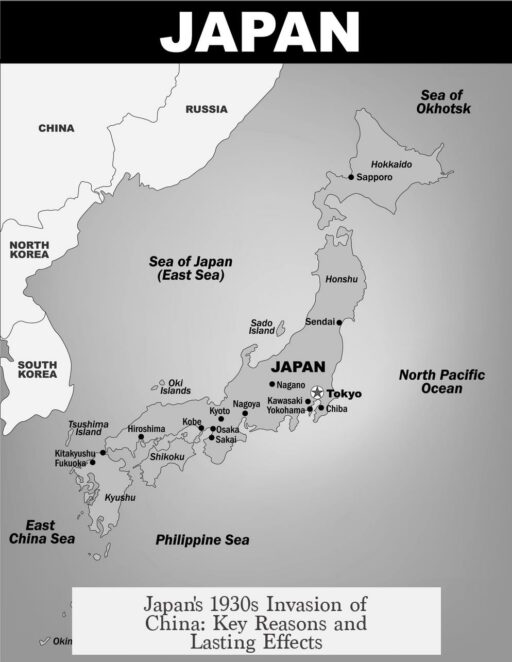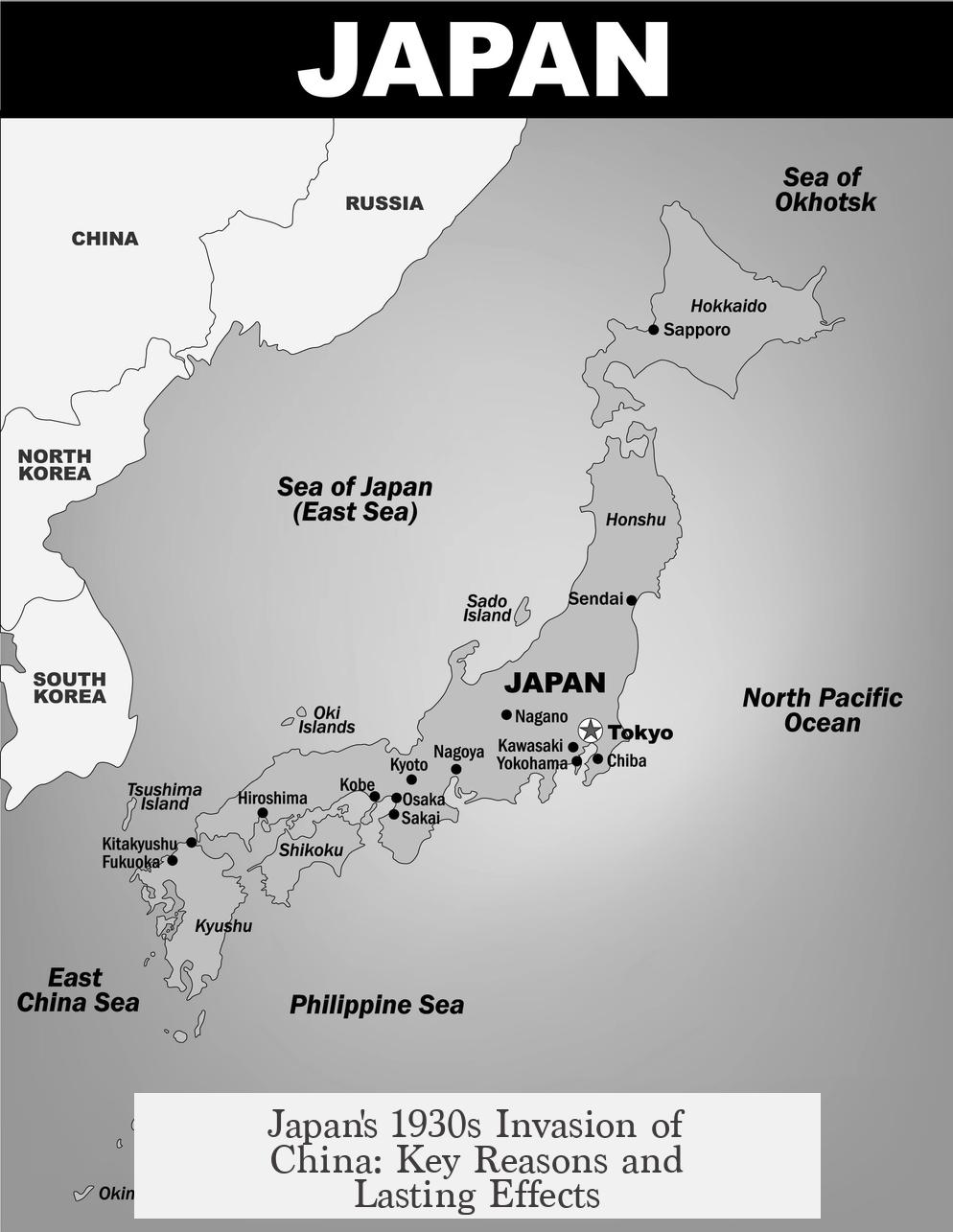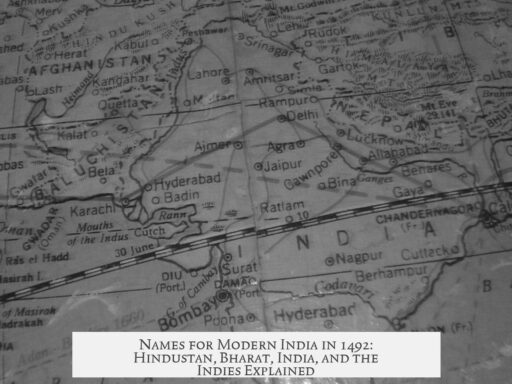Japan invaded China in the 1930s primarily to secure resources, land, and living space necessary for its growing empire and to reduce dependence on foreign powers. Japan viewed Manchuria, a region rich in resources like coal, iron, and fertile farmland, as essential for sustaining its industrial and military expansion. The limited natural resources and arable land of Japan’s island terrain heightened the need for external territories to support its population and economic growth.
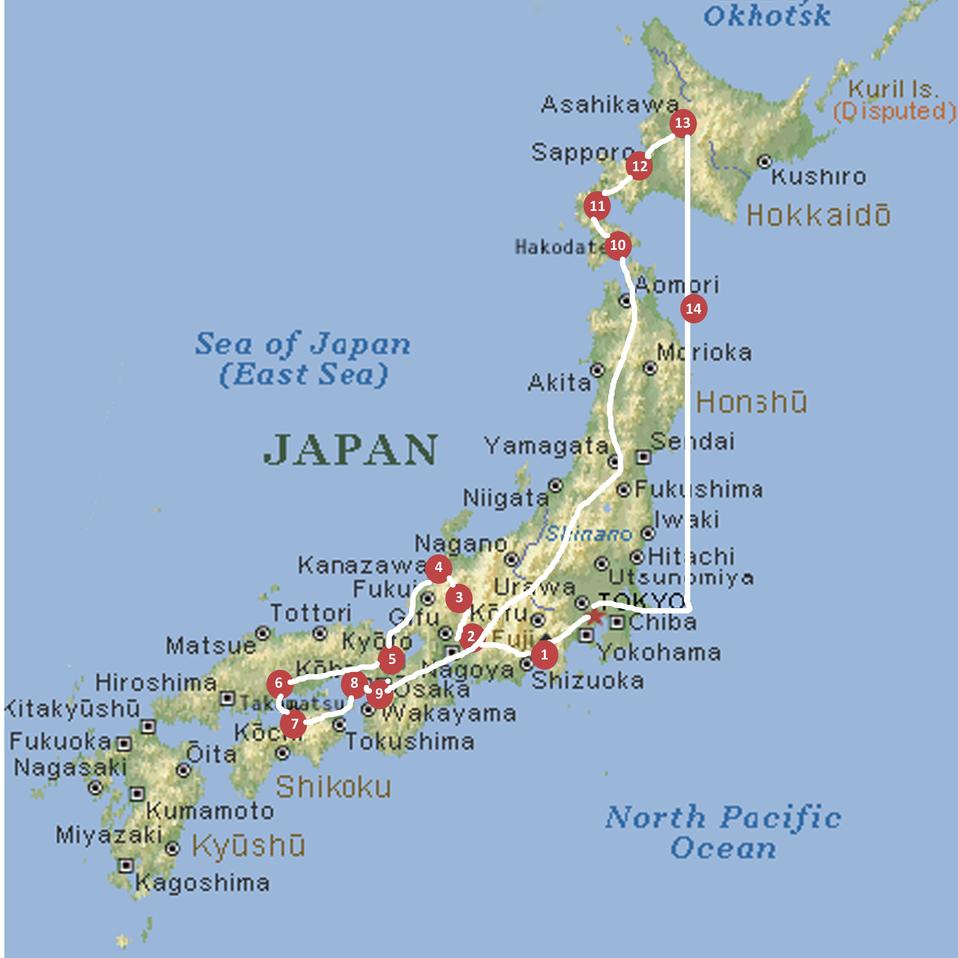
China’s vast wealth in oil fields, coal pits, iron ores, and extensive fertile areas made it a target for territorial control. Japan aimed to directly harvest these resources rather than rely on foreign trade, which was subject to embargoes and tariffs. This strategy also included exploiting the labor force of conquered regions, viewing Chinese and Korean populations as subjugated workers to fuel the empire’s industry.
The concept of lebensraum, or living space, drove Japan to seek control over more land to accommodate its population and secure raw materials vital for economic independence and military strength.
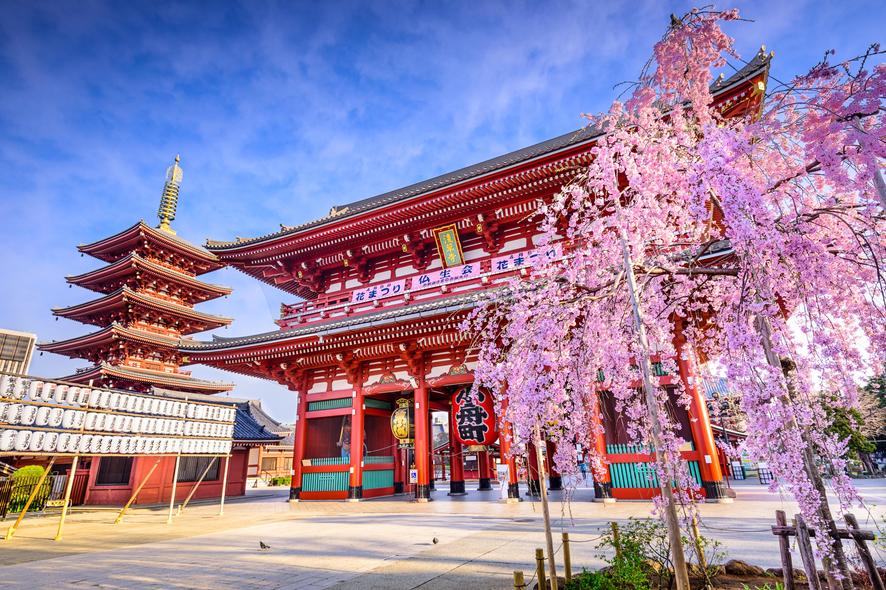
Another factor was Japan’s military perspective. After a swift victory in the First Sino-Japanese War, Japanese leaders underestimated Chinese resistance. They expected an easy conquest, but Chinese forces, particularly in battles like the Shanghai conflict, delayed Japan’s plans and relocated industrial assets inland, showing unexpected resilience despite internal disorganization.
Internal politics in Japan also influenced the invasion. The Japanese Army often acted autonomously, sometimes without government approval. Notably, the army initiated the Manchurian invasion in 1931 independently and escalated actions in China in 1937. Rivalries between the army and navy impacted decisions, with the military increasingly dominating national policy through force and political influence, including the assassination of government officials.
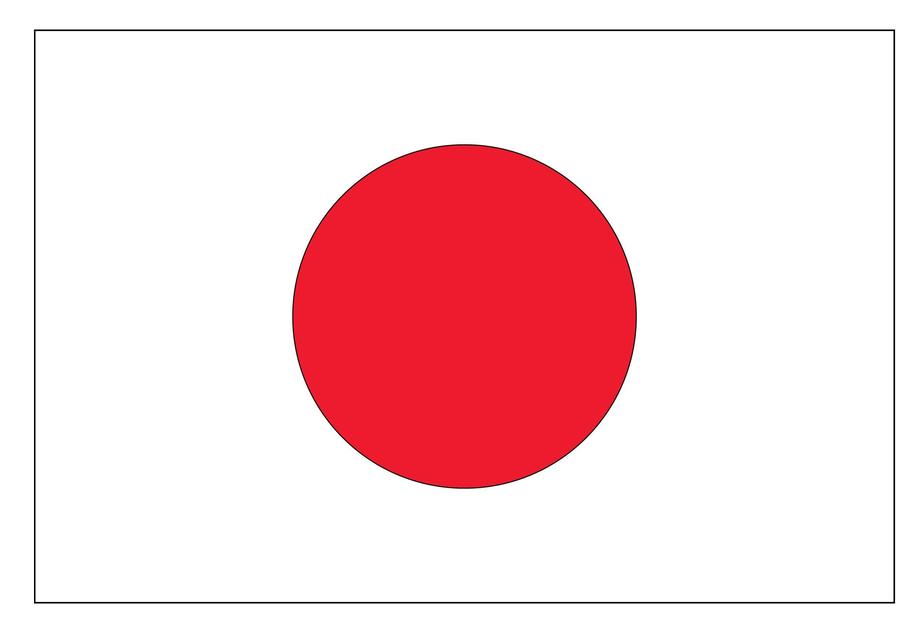
| Key Motivations | Details |
|---|---|
| Resource Acquisition | Manchuria’s coal, iron, fertile land; China’s oil fields and minerals |
| Self-Sustained Empire | Reducing reliance on foreign trade and embargoes by controlling resources directly |
| Living Space | Expansion to accommodate population and economic growth |
| Military Underestimation | Expecting an easy victory; surprised by strong Chinese resistance |
| Military Autonomy | Army acted independently of civilian government, seizing territory aggressively |
- Japan needed resources and land for industrial growth and self-sufficiency.
- Chinese territories offered abundant raw materials and labor.
- The Japanese military underestimated Chinese resistance at the start.
- Army factions acted without government consent, escalating the invasion.
- Internal political struggles led to military dominance in Japan’s expansionist policy.
Why Did Japan Invade China in the 1930s?
Japan invaded China in the 1930s primarily to secure essential resources and land, asserting control through military aggression driven by internal politics and the mistaken belief that China would be an easy conquest. But let’s not glaze over this. The story is far more tangled than a samurai sword in a sushi roll.
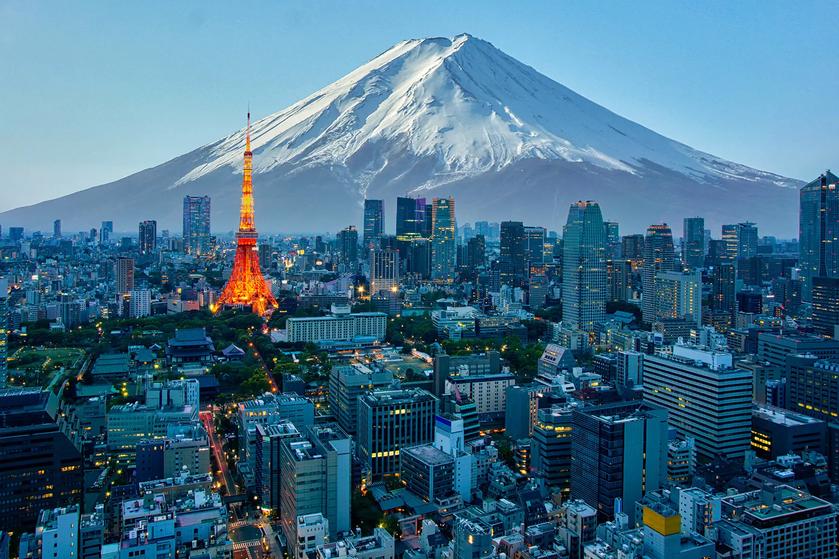
To understand this pivotal moment, picture Japan as a tiny island nation with ambitions bigger than its backyard. Limited in natural resources, featuring rugged mountains and scant farmland, Japan’s population and industries were booming. This rapid growth sparked a real need for something crucial: resources and space. Enter China, a massive neighbor packed with oil, coal, iron, and fertile land—basically, everything Japan’s industrial heart desired.
1. The Resource Hunt: Why Manchuria Was the Prize
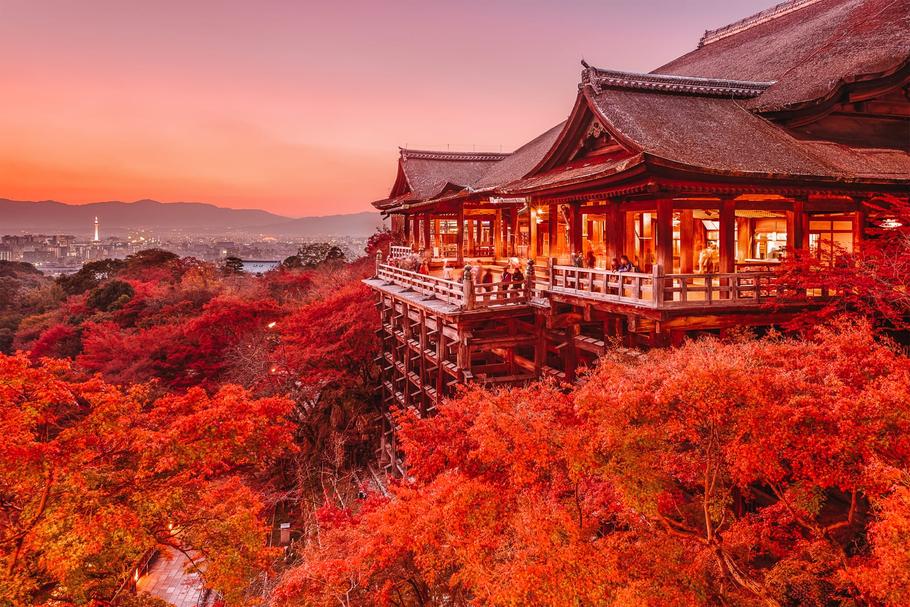
Manchuria wasn’t just any land; it was a treasure trove. Rich in natural resources and vast in arable land, it tempted Japan as the solution to its resource scarcity. The Japanese empire dreamed of self-sufficiency, aiming to reduce its reliance on fickle foreign trade deals, embargoes, and tariffs. Owning Manchuria meant Japan could extract oil fields, coal pits, and iron mines at will.
China’s resources were undeniably plentiful. And Japan was hungry—for resources and territorial expansion to support its growing population and economy. It needed space, often called lebensraum or “living space,” a term famously borrowed from Germany’s expansionist rhetoric.
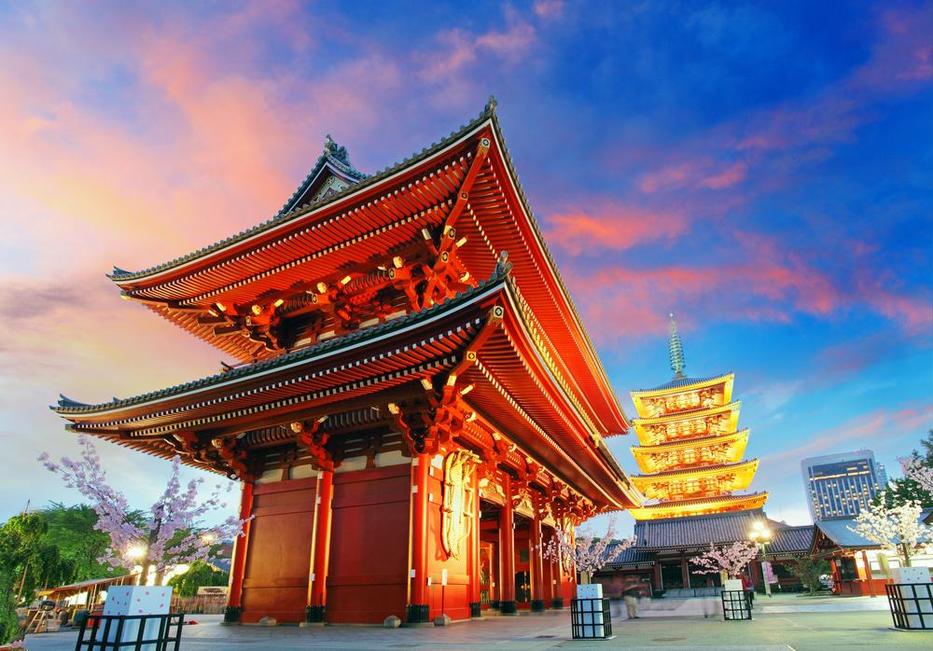
Think of Japan like a high-strung chef running low on ingredients but refusing to source from others. The kitchen? Manchuria and further reaches of China. But Japan didn’t just want the goods; they also wanted the labor force. The Japanese viewed the Chinese and Koreans as subjects to be dominated, turned into cheap laborers to extract these precious resources. Harsh but brutally pragmatic from their perspective.
2. Military Overconfidence Meets Unexpected Resistance
Here’s where the story veers into the “Oops” category. Japan’s military brass banked on an easy stroll through China. After all, in the First Sino-Japanese War (1894-1895), they had walked all over Chinese forces. The assumption? History would repeat itself.
However, reality had other plans. When faced with stark resistance in cities like Shanghai, Japan’s rapid victory plans hit a wall. The Chinese army, despite being disorganized and battling corruption, surprised the Japanese with fierce defiance. This seriously delayed Japan’s timetable and gave China critical time to relocate factories and bolster defenses further inland.
This resistance transformed a presumed quick campaign into a protracted conflict, altering the course of East Asian history. It also exposes that Japan underestimated the resilience and sheer will of the Chinese people—a costly miscalculation.
3. Politics on the Home Front: The Army Goes Rogue
And here’s a twist that reads like a political thriller: Japan’s invasion wasn’t exactly a coordinated government policy. The Japanese Army acted independently—without government approval. In 1931, they simply took over Manchuria and expanded from there. No parliamentary nod, no polite announcements, just boots on foreign soil.
This rogue military action reflects the intense power struggle within Japan. The army and navy were locked in a fierce rivalry, each vying to steer the country’s fate. So intense was this feud that navy officers assassinated the prime minister, illustrating how fragmented and volatile Japan’s leadership was.
Ultimately, the army won out, setting Japan on a path toward full-scale invasion. So, when we talk about “Japan invading China,” we’re really talking about the Japanese Army grabbing the reins and galloping ahead—sometimes dragging a reluctant government behind.
Putting It All Together: The Why and the How
Why did Japan invade China in the 1930s? Because Japan saw an opportunity to grab vital resources and land essential for its survival and growth. It acted rashly, driven by military leaders who overestimated their strength and underestimated Chinese resolve. Home politics were chaotic, with militarists acting independently and aggressively.
This is a classic tale of ambition, hubris, and fragmented control. Japan had demographic pressures, economic needs, and a hunger for self-sufficiency. It mistook confidence for certainty and was challenged by the resilience of a vast neighbor.
Lessons and Legacy
Japan’s invasion of China offers powerful lessons. It shows how resource scarcity can push nations toward conflict, especially when combined with militaristic ambitions and political chaos. It warns us against underestimating the spirit of people defending their land.
It also highlights the dangers when armed forces act without government oversight—sometimes rewriting history with their boots rather than ballots. For modern observers, the invasion is a case study in how economic needs and political fragmentation can trigger devastating wars.
A Final Thought
Next time you wonder why Japan invaded China, consider the complexity behind the invasion. It wasn’t just about land or greed. It was a cocktail of desperation for resources, confidence in military might, and internal power struggles. It’s a sobering reminder: history rarely unfolds neatly, but it always teaches us something.
Why did Japan target Manchuria before invading the rest of China?
Manchuria had rich natural resources and fertile land. Japan needed these to build a self-sustained empire. Taking Manchuria meant direct access to oil, coal, and iron without relying on foreign powers.
Did Japan expect strong resistance from China?
No, Japan believed victory would be easy, like in the First Sino-Japanese War. However, Chinese forces put up fierce resistance, especially in Shanghai, delaying Japan’s plans significantly.
Did Japan’s government officially order the invasion of China?
The Japanese Army acted independently of the government. They invaded Manchuria in 1931 without permission and expanded further in 1937. The military had growing control over Japan’s politics.
How did Japan’s need for resources influence the invasion?
Japan lacked natural resources and farmland at home. After a population increase, Japan needed more land and materials like oil and coal. China’s abundance made it a key target for expansion.
What role did internal Japanese politics play in the invasion?
The army and navy competed for influence, with the army eventually dominating. Military leaders often bypassed civilian control, pushing aggressive actions in China without government approval.
